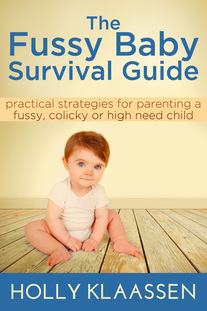- You are here:
- Home »
- Blog »
- High Need Babies »
- Characteristics of The Spirited Child
Characteristics of The Spirited Child
About 20% of all babies born have temperament traits of a fussy or high need, or what we call a spirited child.
Spirited children share many of the characteristics you will find below. They require extra TLC (Tender Loving Care) from parents because their behaviour can be very challenging.
Children generally do not change their temperament as they grow but temperament can change in intensity as they move through their developmental stages.
Parents are not responsible for making a child spirited. They are born that way and grow up to be wonderful adults. Parents handling a spirited child need extra support, and need to be sure that their own needs are met: Sleep, healthy food, healthy self-esteem, and personal time.
Characteristics of the Spirited Child
Babies
- Want to be held all the time.
- Doesn’t schedule well for eating, and toilet habits.
- Cries for no “apparent” reason.
- Reacts strongly against sleep training.
- Won’t stay for long in carriers that are not attached to parents.
- Gets bored very easily.
Toddlers and Preschoolers
- Smart – won’t play with toys, mostly real items.
- Every day is unpredictable.
- Mood swings occur in minutes.
- Wakes up generally unhappy most times from naps and night sleep.
- Experiences early night terrors and many night awakenings. They are restless sleepers.
- Severe separation anxiety occurs, often lasting from age one to age five.
- Goes through most daily requirements such as getting dressed, car-seat buckling, transitions, diaper changing, meals, bath, tooth-brushing, with difficulty and opposition.
- Clings in new situations and with strange people.
- Wants to do everything themselves. The child is very self-directed and is “The Boss”!
- Child is not easily distractible.
- Child has violent, intense tantrums that may last for at least an hour. Tantrums may include screaming, crying, head-banging, vomiting, hitting, and an almost catatonic state where the child can’t hear, respond or listen to calming influences.
- Child is very active during play and sleep
- Often a picky eater.
- The child still requires a lot of attention and physical contact during night-time and day.
School Aged
- Very structured and needs routines.
- Better-tempered if the child gets adequate sleep and food.
- Very determined in needs and wants. Still is very self-directed.
- May dislike clothing blends.
- Requires a lot of physical contact.
- May still have temper tantrums if goals thwarted
- May still have periods of separation anxiety.
Teenagers
- Not easily swayed by peers. Again, still very self-directed.
- Requires a lot of physical contact.
- Determined and self directed. Child wants to make most decisions themselves.
- Child is very responsible, caring and empathetic.
- Can take own responsibility for ensuring sleep, and food intake is adequate.
These are general characteristics of the high needs, fussy or spirited child. Some children are more or less of these. Most children respond well to an easy-going parenting style full of warmth, structure and democratic decision making.
Looking for more answers and guidance regarding your high need or fussy child? The Fussy Baby Survival Guide is jam-packed with information, strategies, stories and the full results of two surveys I’ve done of parents of high need babies. It answers questions like:
- How do I know if my baby is colicky, high need, or something else entirely?
- Will my high need baby ever get easier? And if so, WHEN?
- Is “high need” a real thing? Is there any research to back it up?
- What are the most effective strategies for helping my high need baby sleep?
- How do I deal with my child’s INTENSE tantrums?
For more info or to grab your copy now, click here!
Judy Arnall is a Parent Educator, Mother of five children (three of those spirited!) and author of Parenting With Patience and Discipline Without Distress: 135 tools for raising caring, responsible children without time-out, spanking, punishment or bribery.
Other Posts You May Like
What Is A High Need Baby?
Is My Baby Colicky or High Needs?
The Most Harmful Misconception About Spirited Kids
Is There Really Such a Thing as a High Need Baby?
Fussy Toddler
Characteristics of The Spirited Child

